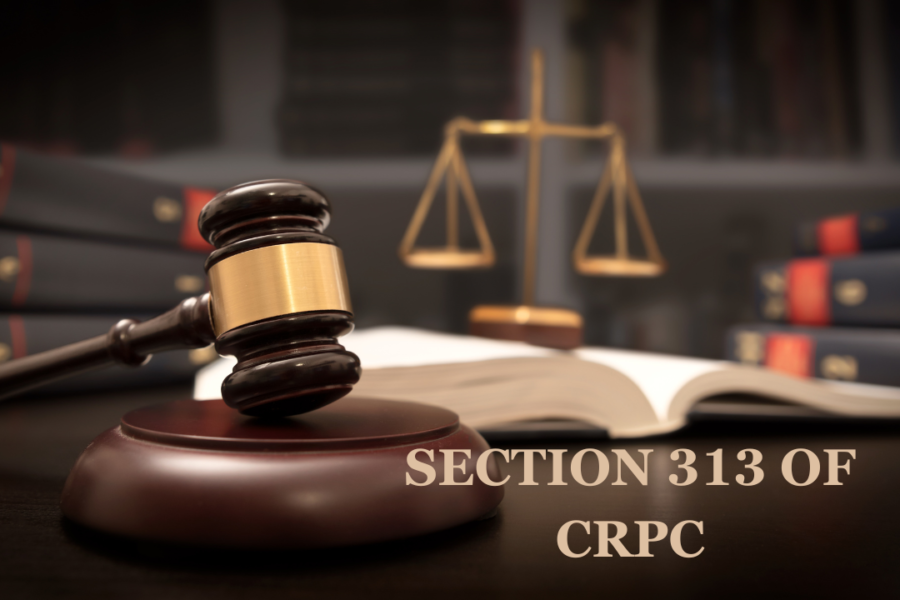“Supreme Court Upholds Rape Conviction Despite Accused’s Defense Not Being Suggested to Victim During Cross-Examination Under Section 313 CrPC”
In a recent judicial decision concerning a rape case, the Supreme Court underscored the significance of an accused’s statements made under Section 313 of the Criminal Procedure Code (CrPC). These statements, where the accused asserts that the victim consented to the sexual act, must be effectively utilized during the cross-examination of the prosecutrix to be considered as substantive evidence.
The bench, comprising Justices Abhay S. Oka and Ujjal Bhuyan, referenced Section 313(4) of the CrPC, which allows answers provided by the accused during this process to be used against them during trial. The court reasoned that if the accused’s assertion of the victim’s consent, recorded under Section 313, is not raised and tested during cross-examination, it cannot be evaluated in isolation. Instead, it must be weighed in conjunction with the entirety of the prosecution’s evidence presented in the case. This nuanced approach ensures a comprehensive assessment of all relevant factors before arriving at a decision in such sensitive legal matters.
The accused individuals, or appellants, in this case were found guilty of raping the victim/prosecutrix. The victim gave their assent for the appellants to engage in compensated sexual relations, according to the appellants’ Section 313 declarations. Nevertheless, the accused did not bring up the subject of their voluntary sexual relations with the victim during the victim’s cross-examination, which would have allowed the victim to refute the accused’s Section 313 assertions.
In a recent judicial decision authored by Justice Abhay S. Oka, the court carefully analyzed the cross-examination of the prosecutrix in a case involving allegations of sexual assault. The court noted that during cross-examination, the defense did not suggest to the prosecutrix that she had consented to sexual intercourse with the accused Vijay. This omission was significant because it allowed the court to uphold the prosecutrix’s initial testimony that the accused committed the sexual act.
Additionally, Justice Oka highlighted that the defense’s case, as presented in Vijay’s statement under Section 313 of the Criminal Procedure Code (CrPC), which claimed a consensual relationship and financial arrangements, was not adequately explored during cross-examination. Similarly, assertions made by other accused individuals regarding financial relationships with the prosecutrix were also not effectively challenged during cross-examination.
This legal analysis underscores the importance of thorough and effective cross-examination in criminal trials, particularly in cases involving allegations of sexual offenses. It emphasizes that for the accused’s statements and defenses to carry weight, they must be rigorously tested and confronted during the trial process.
The court observed that the victim was not given an opportunity to rebut the accused’s claim of her consent during cross-examination regarding the sexual intercourse, which denied her a chance to challenge their assertion.
Furthermore, while appreciating the prosecution’s evidence, the court emphasized that the statements made by the three accused under Section 313—that they had maintained a physical relationship with the prosecutrix by paying her money—should have been utilized during her cross-examination.
Citing the case of State of Punjab v. Gurmit Singh (1996) 2 SCC 384, the court underscored that the circumstances surrounding how the prosecutrix was taken to the location where the offense occurred and subsequently to another place supported her account of forcible sexual intercourse.
In Gurmit Singh’s case, the court articulated that the testimony of a prosecutrix should not be viewed with doubt merely because she has a personal interest in the case’s outcome. The court highlighted the reliability of a victim’s testimony in cases of sexual assault, stating that it stands akin to that of an injured witness and often requires no additional corroboration for conviction.
Based on these considerations, the appeal was dismissed, affirming the High Court’s decision to convict the accused/appellants.
~Arisha Qureshi (Legal Intern)


https://t.me/s/pt1win/527
Актуальные рейтинги лицензионных онлайн-казино по выплатам, бонусам, минимальным депозитам и крипте — без воды и купленной мишуры. Только площадки, которые проходят живой отбор по деньгам, условиям и опыту игроков.
Следить за обновлениями можно здесь: https://t.me/s/reitingcasino
https://t.me/s/iGaming_live/4665
https://t.me/s/iGaming_live/4742
https://t.me/s/reyting_topcazino/16
https://t.me/of_1xbet/103
https://t.me/s/ef_beef
https://t.me/officials_pokerdom/3506
https://t.me/s/Martin_casino_officials
https://t.me/s/dragon_money_mani/36